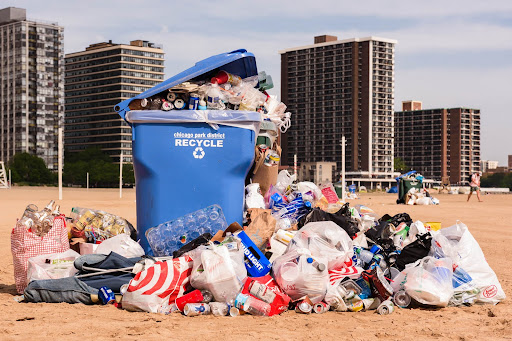
Tell your state legislators to support producer responsibility
The 2024 legislative session has come to a close. Read on to learn about environmental progress we're celebrating, and some of the missed opportunities we'll continue to work towards next year.
Take Action
Every year, guided by our program agenda and with the support of our thousands of members across the state, Environment Washington advocates in Olympia to advance state level legislation that would create a cleaner, greener future for Washington. The 2024 legislative session has come to a close so we wanted to highlight some of the progress that was made this year, and some of the missed opportunities.
HB 1368 passed the Senate by a vote of 29-20, and has now been delivered to Governor Inslee’s desk, awaiting a signature to become law. Over time, this policy will transition Washington’s fleet of more than 12,000 diesel-powered school buses to zero-emission alternatives.
All fluorescent light bulbs contain mercury, and when they break, whether in our homes or after disposal, mercury can present a potential health and environmental hazard. Fortunately, LED light bulbs come in all shapes and sizes and provide a cost-effective and energy efficient replacement to fluorescent light bulbs. HB 1185 will phase out mercury-containing light bulbs, while extending and modernizing Washington’s existing product stewardship program for mercury-containing lights.
Lead is a known neurotoxin lead and children are most at risk for serious health impacts from lead exposure given their growing bodies and brains.
Rep. Gerry Pollet (sponsor of the 2021 Bruce Speight Act to address lead in school drinking water) introduced HB 1151 to address lead contamination found in aluminum cookware, identified by the King County Hazardous Waste Program and Public Health Seattle King County. The bill, which passed the State House and Senate chambers unanimously, will establish a limit for lead in cookware at 5 ppm, given that the FDA uses 5 ppm as an enforcement level for ceramic ware.
The United Nations estimates that globally, one-third of food produced for human consumption is wasted. Not only does this squander resources while food insecurity continues to be an issue, but food waste is a major source of greenhouse gas emissions such as methane. This bill establishes a goal to reduce the generation of food waste by 50% by 2030, and empowers state food bank distribution centers to distribute large volume donations to food banks and pantries throughout the state. Additionally, the policy will require compost collection for single family residents in urbanized areas of the state which will help reduce harmful methane emissions from landfills.
Washington has become the latest state to make moves to streamline permitting for rooftop solar. In the budget passed last week, lawmakers set aside $600,000 to administer a grant program designed to help cities and counties automate the permitting process for solar, in-home energy storage, electric vehicle chargers, and other applicable clean energy technologies.
Washington legislators allocated $55M from the Climate Commitment Act Account for the state to issue grants for multifamily housing projects to invest in energy efficiency upgrades, greenhouse gas emission reductions, renewable energy generation, installation of high-efficiency electric appliances and equipment, and more. (Capital Budget, pg. 67)
The state allocated $45M for School District Indoor Air Quality & Energy Efficiency projects. (Capital Budget, pg. 127).
Legislators allocated $600,000 in its Supplemental Operating Budget to identify and study recreation and conservation opportunities on the Lower Snake River in advance of any future federal decision to authorize breaching of the four federal lower Snake River dams. This study, alongside studies on transportation and energy instructure, will lay the groundwork for how dam services can be replaced if and when dam were to occur. Dam breaching can help restore endangered salmon and orca populations.
The ReWRAP Act would have reduced waste and improved recycling outcomes through establishing recycled content standards and a producer responsibility for packaging and paper products. While there was an abundance of support for the ReWRAP Act, there was not enough time for the House to vote on the issue before the deadline. Environment Washington will continue to build support from the public and leaders of Washington municipalities and solid waste systems in order to make companies responsible for the waste their products create.
The bottle deposit return bill would have established a bottle return and deposit system in Washington, which is a proven mechanism that results in dramatically higher recycling rates for beverage containers. Unfortunately, the bill was never pulled from the Rules committee for consideration by the full House of Representatives.
This bill would have given Washingtonians the right to repair their own devices, including consumer electronics, home appliances, agricultural equipment, and electronic wheelchairs. The policy did not make it out of the House Consumer Protection & Business Committee.
As an advocate with Environment Washington, Pam develops and runs campaigns to protect Washington's air, water, and special places. She has worked on issues ranging from clean energy climate solutions, preventing plastic pollution, defending clean water, and protecting our special natural spaces. Pam lives in Steilacoom, Washington, where she enjoys kayaking on the Puget Sound, gardening and hiking in the surrounding mountains.
